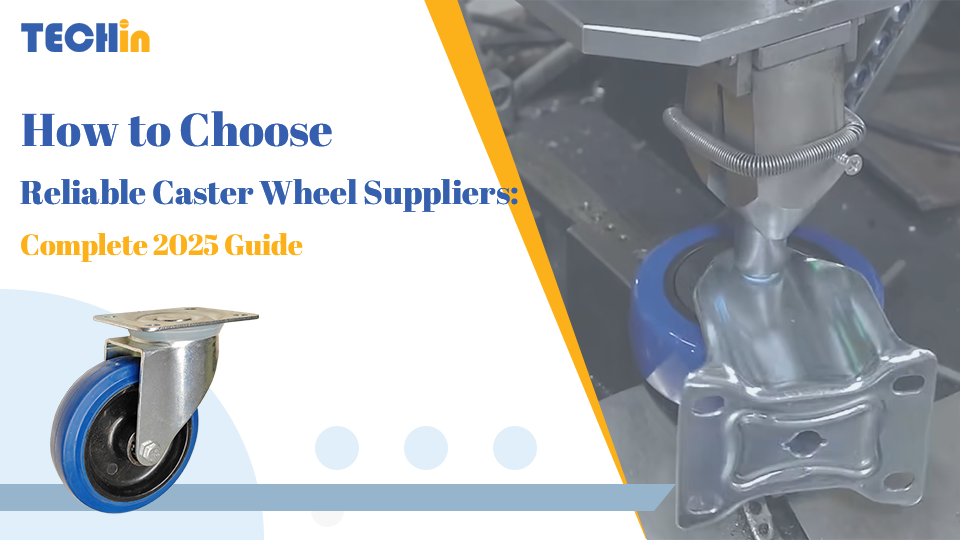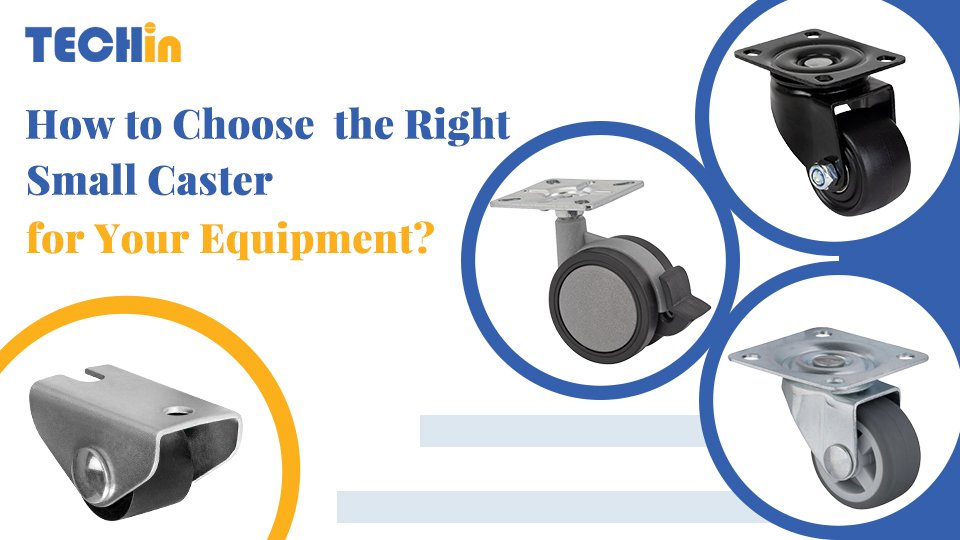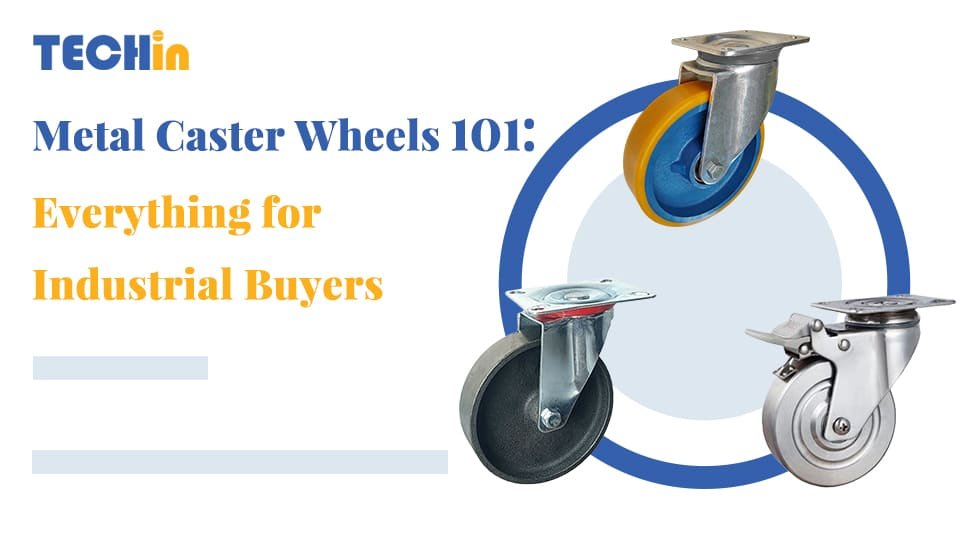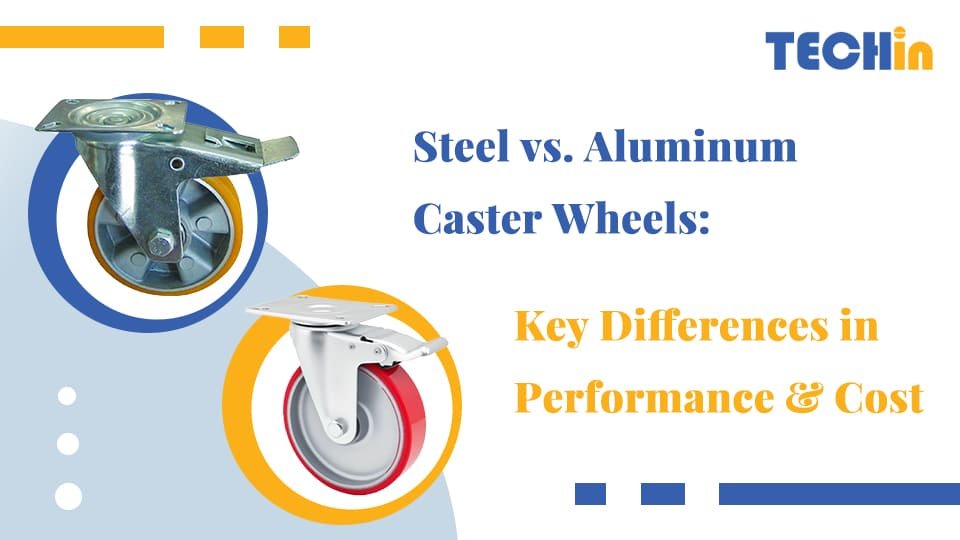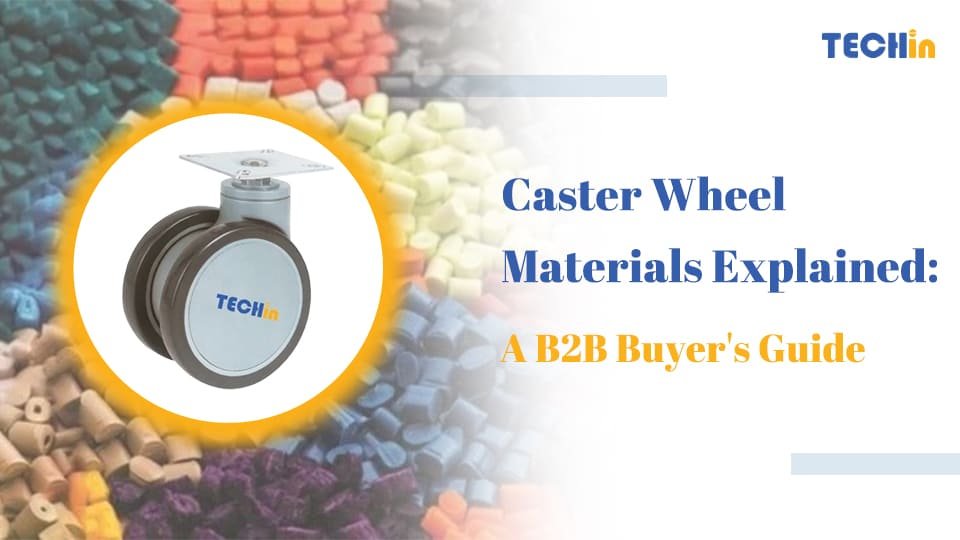Introduction
When it comes to your projects, the right supplier makes all the difference. Choosing the wrong one can lead to low-quality products, frustrating delays, and wasted resources. But the right partnership ensures the reliability, safety, and cost efficiency you need. With a clear process, any buyer or procurement manager can confidently select a trustworthy partner in today’s competitive 2025 market.
To choose a reliable caster wheel supplier, start by defining your project needs—like load capacity, wheel type, and application. Then, evaluate potential suppliers based on material quality, durability testing, certifications, and service reliability. Transparent pricing, on-time delivery, and responsive technical support are key signs of a trustworthy partner, ensuring your industrial and heavy-duty caster wheel projects perform for the long term.
Alright, let’s dive in. We’ll cover why your supplier choice is so critical, how to define your project needs, and the essential qualities to look for when you’re comparing caster wheel distributors in 2025.
Understanding Why Supplier Choice Matters in 2025
It helps to think of your supplier as a partner in your success, not just a vendor. An unreliable one can introduce costly downtime, create safety issues with your equipment, and even damage your reputation with your own customers.
In 2025, buyers are navigating a few new challenges:
- Stricter safety and compliance standards for caster wheels in industrial settings.
- A greater demand for heavy-duty and specialized wheels in logistics, manufacturing, and construction.
- Growing sustainability concerns, with many buyers prioritizing eco-friendly production processes.
This is why working with a trustworthy supplier is so critical. It ensures you have compliance, innovation, and a stable supply chain—all essential for procurement managers handling important projects.
Clear Your Needs Before Choosing a Supplier
Before you begin evaluating suppliers, the first step is to get a clear picture of what you’re looking for. A detailed requirements list will save you time and help you avoid a costly mismatch down the road.
Key factors to consider:
- Load capacity: Do you need heavy-duty caster wheels for industrial equipment, or are light-duty options suitable for smaller furniture or retail use?
- Wheel diameter & size: From 5 in caster wheels to larger models, the diameter directly impacts stability and how easily the wheel rolls.
- Operating environment: Consider the flooring type, temperature, and any exposure to chemicals or moisture. For outdoor or chemical-heavy use, rubber caster wheels heavy duty are often an excellent choice.
- Application-specific requirements: Are you looking for industrial castor wheels for factory machines, or versatile caster wheel heavy duty designs for logistics projects?
By clarifying these needs first, you can more effectively match suppliers with the right capabilities for your project.
Evaluation Criteria: Key Qualities of Reliable Suppliers
Once your needs are defined, you can move on to evaluating suppliers. This is where it’s important to look beyond the price tag and assess their true value. Here are the essential qualities to examine in detail:
- Material Quality
- Reliable suppliers are transparent about the materials they use, such as high-grade rubber, nylon, or polyurethane.
- For heavy-duty applications, a polyurethane-coated wheel can offer a significantly longer life compared to basic rubber.
- Always feel comfortable requesting material specifications and data on wear resistance.
- Testing & Performance Standards
- A professional supplier should be able to prove their quality with comprehensive testing, including load-bearing tests, durability cycles, and corrosion resistance tests.
- Ask whether testing is done in-house or by a third-party lab. Independent test results can provide stronger confidence.
- For industrial castor wheels, shock absorption and rollability tests are equally important.
- Certifications & Compliance
- Look for suppliers with ISO certifications (ISO 9001 is a key indicator of quality management).
- Check if they comply with RoHS and REACH, especially if your products are headed to Europe.
- This isn’t just paperwork; it shows the supplier is serious about international standards, safety, and environmental responsibility.
- Production Capacity & Supply Stability
- For procurement managers, supply continuity is just as important as product quality.
- Ask about their factory capacity, average monthly output, and realistic lead times.
- A dependable supplier should also have a proven track record of handling both urgent and bulk orders smoothly.
- Customer Service & Technical Support
- Great suppliers don’t just ship wheels; they act as a resource.
- Look for partners that provide technical drawings, help with load calculations, and offer fast response times.
- A responsive supplier can save you from making costly mistakes.
- Pricing Transparency & Long-Term Value
- Look for suppliers who provide clear, detailed quotations without leaving out shipping and tax details.
- The cheapest option is rarely the most cost-effective. It’s better to focus on lifecycle value—a longer-lasting wheel reduces replacement costs and downtime.
🚩 Red Flags to Avoid:
- No testing reports or certifications available.
- Vague answers about capacity or lead time.
- Lack of a clear process for after-sales support.
- A history of delays or inconsistent product batches.
By applying these criteria, procurement managers can confidently distinguish genuine, reliable suppliers from opportunistic vendors.
Questions Buyers Often Ask
What certifications should I look for?
ISO certifications are essential for quality assurance. Additionally, RoHS and REACH compliance show that environmental and safety standards are being met.
Should I choose Global or Local Suppliers?
- Global suppliers often provide competitive pricing, a broader product range, and large-scale production capacity, making them ideal for bulk orders and long-term contracts.
- Local suppliers can offer faster delivery, easier communication, and sometimes more personalized after-sales support. They are well-suited for urgent needs or small to mid-sized projects.
The right choice depends on what matters most to your project: cost and variety (global) or speed and service (local).
Conclusion
Choosing the right caster wheel supplier is a strategic decision that pays off in quality, safety, and long-term savings. By taking the time to clarify your needs and carefully evaluate suppliers on the qualities that truly matter, you ensure reliability is built into every purchase. For procurement managers and buyers in 2025, trusted names like Techin continue to serve as a professional reference in the caster wheel industry.

